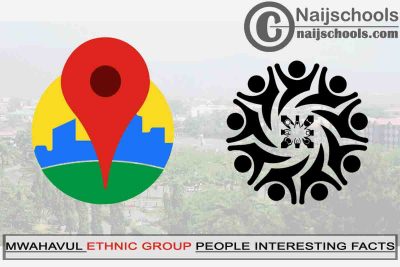Here are 13 Interesting Facts About the People of Mwahavul Ethnic Group in Nigeria. These people are sometimes known as Mwahavul people and have a long history of migration before finally settling in the North-central geopolitical of Nigeria.

It is a good thing to learn about different ethnic groups in Nigeria. This article gathers facts about a particular ethnic group as well as its resident state.
13 Interesting Facts About the People of Mwahavul Ethnic Group in Nigeria
With these interesting facts, you are about to read you can know more about the people of Mwahavul ethnic group in Nigeria
1. State of Residence in the Country
The Mwahavul people of Nigeria are not widespread in the country. They are a minor people found only in Plateau state. They occupy a small region of the north-central zone of Nigeria: Plateau State.
2. Local Government Areas
These people occupy about 80 to 85 per cent of the land of the Mangu local government area and also some part of Barkini-Ladi as well a very small part of the Pankshin local government area, of which all are in the confinement of Plateau state.
3. History; Interesting Facts About the People of Mwahavul Ethnic Group
The migration history of the Mwahavul people is a complex one with different travel histories from one land to another until now when they are in a somewhat permanent home. Their migration history dates back all the way to the 1700s from the Middle East before settling in Chad Basins for a short while.
They show a travel history in these various places; Borno state where they were once part of the Kanem Bornu empire and also Kaduna as well as Bauchi. The reason for their migration is in search of green lands for their Agriculture.
4. Language
Language is one of the attributes that make a particular tribe unique. Mwaghavul also known as Mupun as well as Sura is the language of the people. It is a dominant language in Mangu local government area and it is an Afro-Asiatic language.
5. Population
The Mwaghavul people are not a very popular tribe in Nigeria, however, they are dominant in the Mangu local government area of Plateau state with a population of 180,000 in the local government areas where they are found.
6. Ethnicity is One of the Interesting Facts About the People of Mwahavul Ethnic Group
Affinity Bloc: Sub-Saharan People.
People Cluster: Chadic.
People Group: Mwaghavul, Mwahavul.
Ethnic Code: NAB60b.
7. Education
In Nigeria today, education seems to be more rampant than before. A lot of primitive tribes now buy the idea of education. The Mwaghavul people are one of the tribes in Nigeria that strongly believes in the power of Education.
They have access to the schools around them and also the tertiary institutions of Plateau states such as the University of Jos as well as Plateau State Polytechnic and others.
8. Occupation
One of the advocating reasons for their numerous migration was Agriculture. They are mostly farmers with some fishermen. They are blessed with good lands where they grow their crops for commercial and substantial purposes.
9. Religion is Another Interesting Facts About the People of Mwahavul Ethnic Group
Another advocating reason for their movement from Bauchi was during the Jihad. They are mostly Christians with about 80 per cent of their population serving God. Muslims are hard to find in the tribe, only a few of them identify as Muslims.
10. District
In Mangu, the Mwaghavul people occupy several districts such as Panyam district, Pushit, Kereng, Mangun, Kombun, as well as Ampang West district.
11. Geography
The Mangu local government area of Plateau state which has its headquarters in Mangu town has an area of about 1,653-kilometre square and it hosts the factory of Nigeria’s first table water; SWAN.
12. Ethnic Groups in Mangu; Interesting Facts About the People of Mwahavul Ethnic Group
They include
- Mwaghavul; The most populous.
- Jipai
- Pyem
- Chefkam
- Kwanka
These ethnic groups are the tribes that make Mangu local government area unique. They occupy different land districts and together give Mangu a population of 294,931 people.
13. Mangu Town
These includes;
- Kaper
- Katul
- Kabum
- Rundum
- Kanjing
- Bul
- Male
- Zwagal
- Kwa
- Kaburuk
- Kaburuk
- Koplar
- Dungning
- Gindiri
- Panyam
- Pushit
- Kerang
- Mangun
- Ampang West.
- Kadunung
Conclusion
In conclusion, you have learnt about another ethnic group in Nigeria. If you wish to know more about the diversity of Nigeria you can check other related articles on this site.
Also, Check Out;
- 13 Interesting Facts About the People of Igbo Ethnic Group in Nigeria
- 13 Interesting Facts About the People of Gonia Ethnic Group in Nigeria
- 13 Interesting Facts About the People of Gornun Ethnic Group in Nigeria
